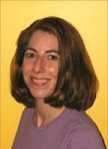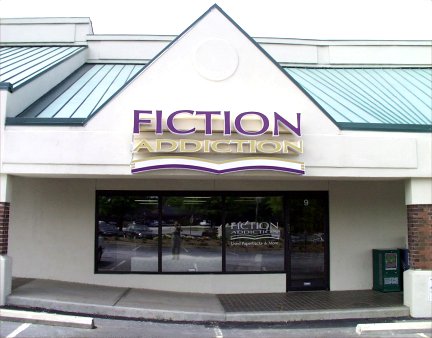

|
Writing a Used Bookstore Business Plan
|
|
So, you've decided that you want to open a real-life bricks-and-mortar used bookstore. Perhaps you're an avid reader and owning your own bookstore has been your lifelong dream. Or perhaps you're an online bookseller and now you're thinking of moving into the bricks & mortar realm. No matter what your situation, your first step should be to write a business plan. |

|

Traditionally, one writes a business plan in order to get outside financing for one's business. Yet most used bookstores are financed through the owner's personal assets (i.e., a windfall, a home-equity loan, a family loan, credit cards) rather than through a traditional business loan. So then, as a prospective bookstore owner, do you really have to write a business plan?
Yes, you do.
I can hear the groans already. Even if you are able to provide your own financing, you may still have to show a business plan to prospective landlords (I did). But the real reason to write a business plan is that the process of writing it will help you identify your store concept, validate your ideas, and address key issues in advance so that you are using your limited resources wisely and not just winging it.
Your business plan should tell the story of your business - both verbally and financially. It is a document detailing the decisions you have made (e.g., I will target upscale clientele who may never have shopped at a used bookstore before), your key assumptions (e.g., I will be able to sell used fiction hardcovers at $8.00 each), how you will differentiate yourself from your competition (e.g., I'll be the only used bookstore in town carrying hardcovers) and your mid- and long-range strategic plans (e.g., After the business is running smoothly, I will begin uploading my inventory to my own website and one or more of the online aggregator sites).
Before you move on to the sample business plan I've drawn up, I want you to close your eyes and take a moment to envision your future store. Think about what it looks like, what type of inventory it has, what your customers will be like and how you will interact with them. Now open your eyes and jot down everything you can think of to describe your store.
The used bookstores I frequented while growing up and those I later discovered while living in New York tended to be bargain-basement type stores where the books were lumped into categories but not necessarily alphabetized, nothing was computerized, the shelving didn't match, and as much inventory as possible was crammed into the space with very little merchandising. In comparison, when I envisioned my store I wanted a shop with an upscale, new-bookstore feel, yet with used bookstore pricing.
Your vision for your store is what is going to underlie your business plan and will be the bedrock that you'll return to time and time again when making the zillion decisions that are involved in starting a new business. If your vision is fuzzy around the edges right now, then consider visiting as many other bookstores - used and new - as you can and taking notes about what you like and dislike about each store.
If necessary, expand your investigation to retail stores in general. Where do you personally like to shop and why? What makes you go out of your way to patronize a specific establishment, and what's the pet peeve that will have you vowing never to return somewhere again? A good resource on this topic is Why We Buy: The Science of Shopping by Paco Underhill, ISBN 9780684849140, $15.00.
Once you have a clear vision of your future store, try articulating it into a sentence or two. Such as: "I plan to open a used bookstore with an upscale, new-bookstore feel and the customer service that independents are known for." Or: "I plan to open a children's bookstore that has the whimsical wonder and excitement of Disneyland."
Congrats! You've just developed your store concept. Now it's time to get down to the nitty gritty and start writing your business plan.
I've developed a sample business plan for my store, Fiction Addiction, that assumes I was starting the same business today. Included in each section are notes suggesting questions to consider when formulating your own plan. Parts II-III of this series will take you through the verbal sections of that plan, and Part IV will address the big, bad bogey: the financials.
Please keep in mind that you're not expected to be able to sit down after reading this and crank out your own plan all at once. Instead, use an iterative approach: Start by filling in the bits that you already know and then make a list of decisions you still need to make or information you need to research. As you make each decision or find out a piece of new information, fill in or adjust your plan appropriately. Also, don't feel like you have to start with Part I then go onto Part II, etc. Instead, start with the sections you feel most comfortable with.
NOTE: If you have any comments or questions about this article please email me at fictionaddiction@juno.com. Stay tuned next week for Part II of "Writing a Used Bookstore Business Plan." It will include the first three sections of a sample business plan - covering your objectives, startup costs, and the product and services you plan to offer.
Want to read more articles by
BookThink's Contributing Editor Jill Hexdrix?
Click here.
Questions or comments?
| Forum
| Store
| Publications
| BookLinks
| BookSearch
| BookTopics
| Archives
| Advertise
| AboutUs
| ContactUs
| Search Site
| Site Map
| Google Site Map
Store - Specials
| BookHunt
| BookShelf
| Gold Edition & BookThink's Quarterly Market Report
| DomainsForSale
| BookThinker newsletter - free
Copyright 2003-2011 by BookThink LLC
Contact the editor, Craig Stark
editor@bookthink.com

|